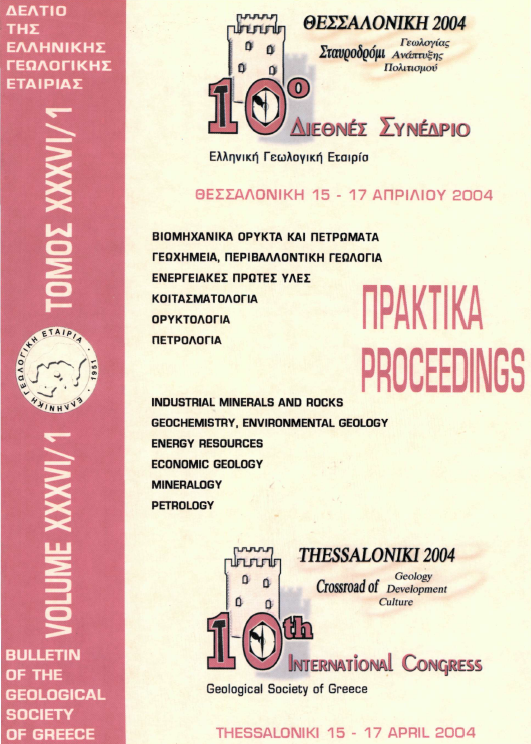GLOBAL ENERGY SECURITY IN THE 21ST CENTURY
Résumé
There is no doubt that the world's need for oil and gas will continue to increase for the next two decates. In 2000 fossil fuels supplied 90% of global energy, with crude oil accounting 40% of the total, natural gas 25%, coal 25%,nuclear energy 7% and hydro-electricity 3%.But fossil fuels are exhaustible resources. Energy experts believe that the future global oil supplies will meet demand until global oil production has peaked between 2005 and 2013 causing a serious energy shortage 4 to 5 years later this. Globa1 community has to be prepared to face the coming energy crisis. Perhaps, under a global scenario of rising prices, a new stable energy mix could be achieved with massive conservation, alternative fuels and energy efficiency improvements
Article Details
- Comment citer
-
Φωκιανού Τ. (2004). GLOBAL ENERGY SECURITY IN THE 21ST CENTURY. Bulletin of the Geological Society of Greece, 36(1), 283–291. https://doi.org/10.12681/bgsg.16645
- Rubrique
- Energy Resources

Ce travail est disponible sous licence Creative Commons Attribution - Pas d’Utilisation Commerciale 4.0 International.
Authors who publish with this journal agree to the following terms:
Authors retain copyright and grant the journal right of first publication with the work simultaneously licensed under a Creative Commons Attribution Non-Commercial License that allows others to share the work with an acknowledgement of the work's authorship and initial publication in this journal.
Authors are able to enter into separate, additional contractual arrangements for the non-exclusive distribution of the journal's published version of the work (e.g. post it to an institutional repository or publish it in a book), with an acknowledgement of its initial publication in this journal. Authors are permitted and encouraged to post their work online (preferably in institutional repositories or on their website) prior to and during the submission process, as it can lead to productive exchanges, as well as earlier and greater citation of published work.



